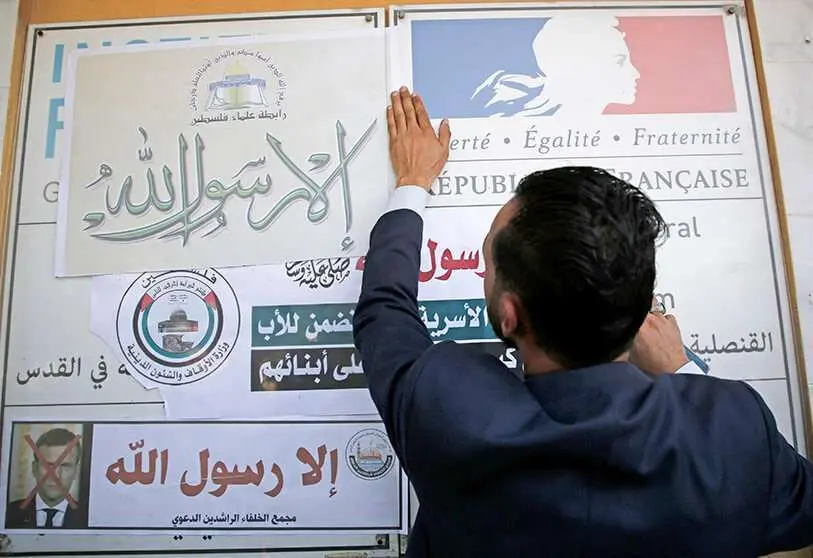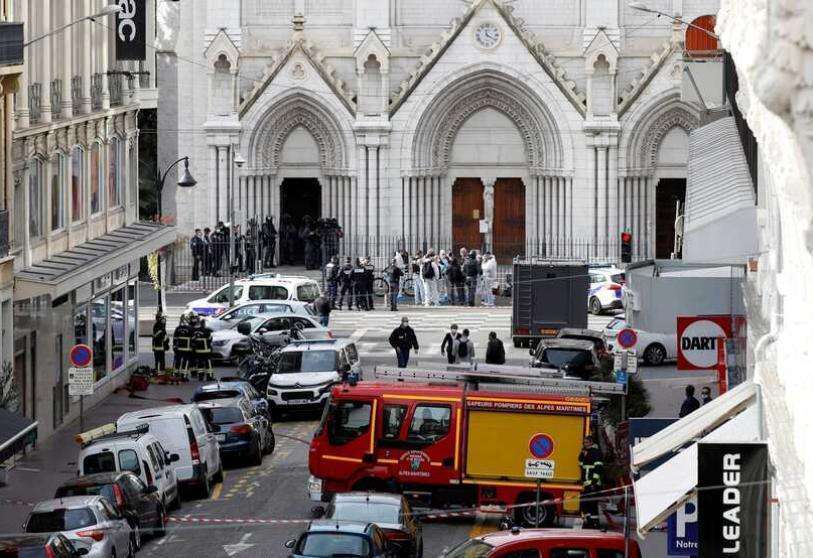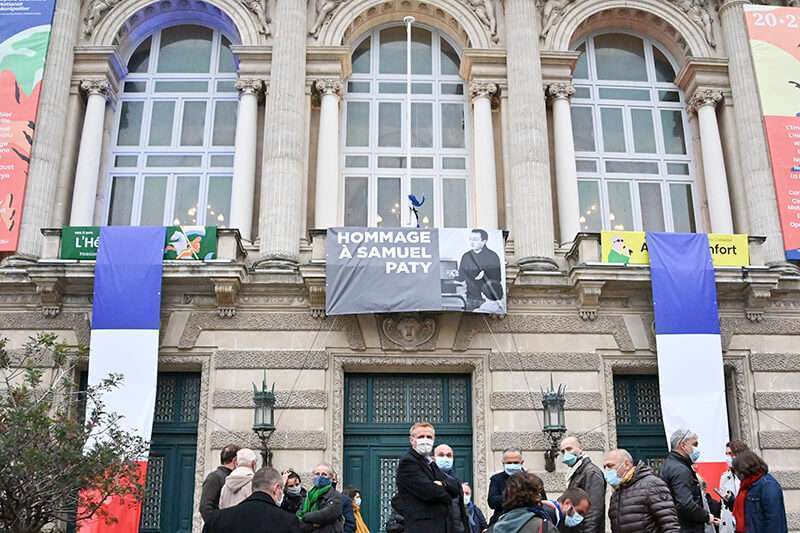Macron and his "fight against radical Islamism": Is France alone in this fight?

"The fight against terrorism and radical Islamism is a European fight, a fight for values". This is how the President of the French Republic, Emmanuel Macron, put it in an interview with Le Grand Continent.
The journalistic piece came a few days after the last attack, in a series of three, which France had suffered in scarcely a month, the period from 25 September to 29 October. Firstly, on that 25th September, the Parisians recalled the attack on the headquarters of the satirical magazine Charlie Hebdo in January 2015 when a new knife attack took place in these same offices. For this reason and in defence of freedom of expression, a history professor, Samuel Paty, taught one of the cartoons of this magazine in his classes and a few days later, on 16 October, his throat was cut in the street. The author of this attack wrote on his social networks: "For Macron, the leader of the infidels, I executed one of his hellhounds who dared to despise Mohammed". The French president replied with a "will not pass".
Finally, on 29 October, scarcely two weeks after the murder of Professor Paty, a new attack was perpetrated in the city of Nice, also the scene of a terrifying attack in July 2016 that left over 80 people dead. In this case, three people were victims of the Jihadist attack in the vicinity of the Basilica of Notre Damme.
In the face of this situation, what was striking was not the logical wave of support and condolences that France received from its European counterparts, but the response of hatred that it provoked in Muslim countries around the world. The Egyptian President, Al Sisi, stated that "they must stop if they offend the Muslims"; the Prime Minister of Pakistan, Imram Khan, called Macron "an Islamophobe" while the Chechen President, Ramzan Kadirov, threatened "more crimes like that of Professor Paty" in the face of "the arson attack by Macron". However, the most striking statement was made by the former Prime Minister of Malaysia, Muhatir Mohamad, who pointed out that "Muslims have the right to be angry and to kill millions of French people because of the massacres of the past".

Even within France, voices were raised against Macron's declared "battle" against Islamic extremism, such as that of the president of the French Council of the Muslim Cult, who stressed the need to "give up some rights so that there can be brotherhood in our country".
There is no doubt that France is a country with obvious Muslim influence owing to its historical past. Nevertheless, there are around five and a half million Muslims living in the country according to data from the portal Statista, and a Europol report states that it led the number of arrests for Jihadism in 2019, 202 compared to 56 for Spain, the second country on the list. France has likewise been the country worst hit by Islamic terrorism since the beginning of the 21st century, with over 250 victims, and between 2015 and 2020 alone 259 people have been killed, followed far behind by the United Kingdom, with 42 victims, according to the Spanish government's Department of National Security.
However, Emmanuel Macron tries not to generalise and in the same interview in Le Grand Continent he said that "Islamist terrorism distorts religion" and recalled that "more than 80% of victims are in the Muslim world", although he was emphatic in pointing out that "I am not going to change my rights because they offend elsewhere" because "respect should not be to the detriment of freedom of expression" and what "cannot be asked of Europe is that it should apologise for the freedoms that are allowed".
In response to these declarations, on 9 December the French president will present the "Law against Islamic Separatism", which aims to "strengthen secularism and consolidate republican values" while describing the banning of Islam as "stupid" because "it would be the best gift we could give to those who want to shake up the Republic". Furthermore, Macron criticised the fact that "it is we who have built the ghettos", referring to those sub-societies of Muslims, who are very likely to find subjects to radicalise, which seem to exist in some of the country's cities.

But is France alone in its war against Islamic extremism? Where is Europe? Following the attacks in France and Austria (on 3 November four people died and nearly twenty were injured in a shooting in the centre of Vienna), the president of the European Commission, Ursula Von der Leyen, announced the presentation of the European agenda to combat terrorism on 9 December, while pointing out three actions aimed at this.
Firstly, prevention, developed in three lines of action: creating expectations for young people; creating a European anti-radical network; and the Digital Services Act, which will act against "harmful or illegal" content. Secondly, protection of external borders, all the more so since the perpetrator of the Nice bombing entered illegally via Lampedusa in September and managed to reach France. This is why the Schengen Forum was recently held, where it called for strengthening police and security cooperation, reinforcing EURODAC (database of asylum seekers and illegal immigrants) and giving more powers to Europol and the presentation of a new Schengen Strategy in 2021, because, in the words of Von der Leyen: "A Europe without internal borders is only possible if there is effective protection of its external borders". Finally, the third action is action, exemplified in this forthcoming presentation of the European Agenda for combating terrorism and the improvement of the Schengen Information System.
All this should be completed with the implementation of the new migration and asylum plan presented a few weeks ago. For several years now Europe has been facing a serious security problem and it is France that is prepared to lead the response against Islamic terrorism. But France should not be the only one to fight for the rights and freedoms achieved in Europe; it should be a joint response. In the face of terror, unity.
